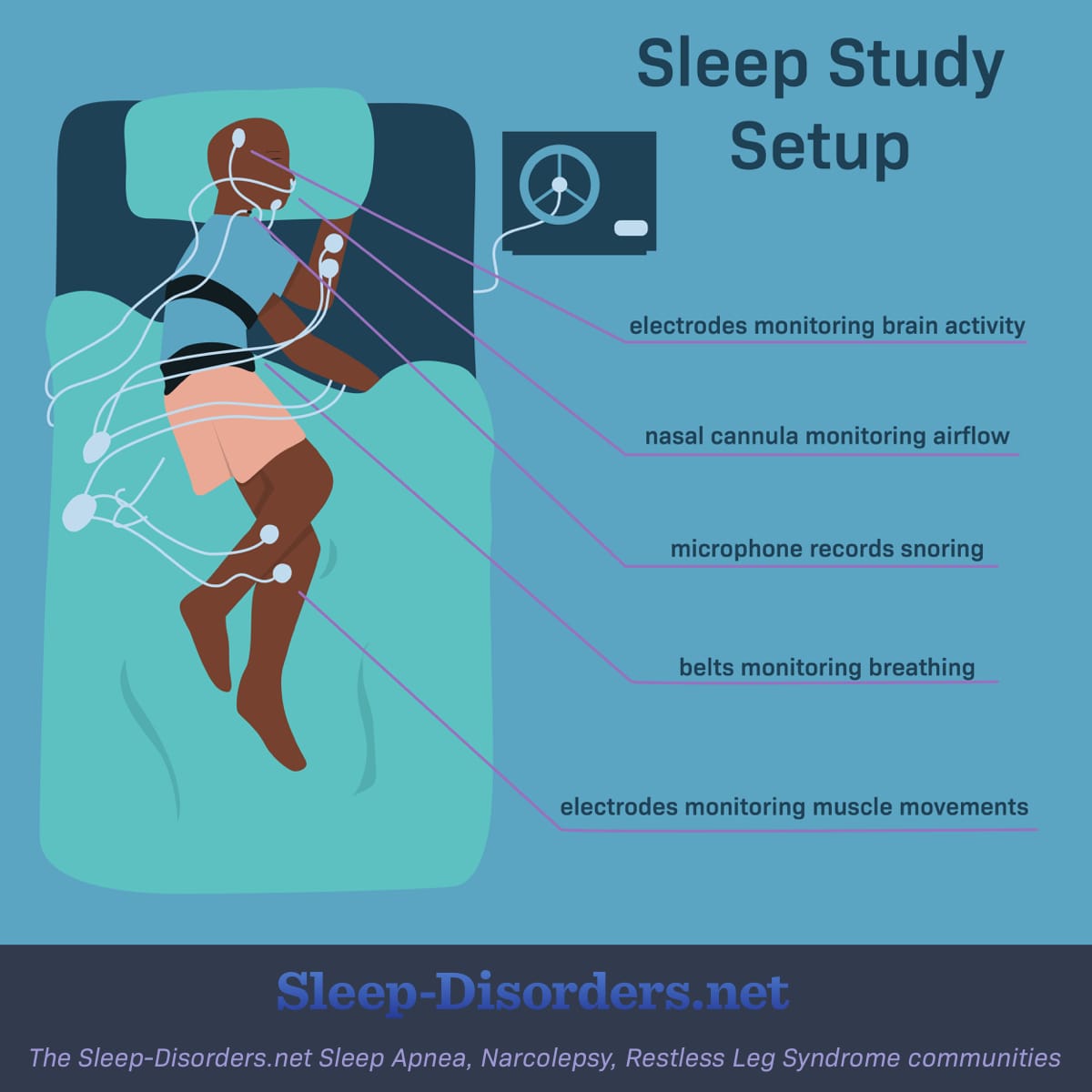What Is a Sleep Study (Polysomnography)?
Reviewed by: HU Medical Review Board | Last reviewed: June 2020 | Last updated: June 2020
Polysomnography (pronounced polly som na gra fee) is the medical term for a sleep study. A sleep study looks at different body functions while you sleep, or try to sleep. The results can tell doctors whether you have a sleep disorder, and if so, which kind.1-4
Sometimes one night’s sleep provides enough evidence to diagnose a sleep disorder. Other times, two or more nights may be required.
Sleep studies are used to diagnose sleep apnea, periodic limb movement disorder (PLMD), narcolepsy, idiopathic hypersomnia, REM-sleep behavior disorder, and sleep-related epilepsy.1
What happens during a sleep study?
During a sleep study, a sleep technologist records brain waves, oxygen levels in the blood, heart rate, breathing, body position, and any eye, leg, or arm movements. Sleep cycles and sleep stages are also measured. Video may be used to record sound and movements.
Where does a sleep study take place?
Polysomnography is a sleep study performed in a specialized lab in a sleep center or clinic. You will sleep in a bed in a room more like a private hotel room than a hospital. This is to help you feel comfortable enough to sleep more naturally.
A full sleep study cannot be done at home. Home sleep apnea tests are available but only measure a few things about your sleep. Still, these results may be enough to diagnose some cases of sleep apnea. A home test may need to be followed up with a center-based study. Home sleep apnea tests cannot be used to diagnose other sleep disorders.1-2
How to prepare for a sleep study
Before any sleep study, do not take any sleep medicines or drink alcohol or caffeine. You should avoid vigorous exercise or naps the day of the study.1,3
For a study at a sleep center, you will be asked to arrive 2 hours early. Once you are in bed, you will have sensors placed on your head, near your eyes, mouth, nose, chin, around your chest and abdomen, and on your legs and arms. These sensors will measure everything from heart rate and eye movement to breathing. A sleep technologist will monitor your sleep.
The sensors will measure:1-4
- How long it takes you to fall asleep
- How long it takes you to enter REM sleep
- How long you remain in each stage of sleep
- How often you wake up and how long it takes you to fall back asleep
- Whether you stop breathing or struggle to breathe
- Whether you move your arms or legs during sleep
- Your muscle tone while asleep
- Your oxygen levels
- Your heart rate and heart rhythm tracing
Figure 1. What to expect during a sleep study
While most sleep studies take place at night, shift workers who normally sleep during the day can often schedule a day-time test. People with narcolepsy may stay in the lab all day to record daytime sleepiness and naps.
How much do sleep studies cost?
Costs for a sleep study in a certified sleep study start at $1,300 per night. Insurance may cover some or all of the costs.4-5
